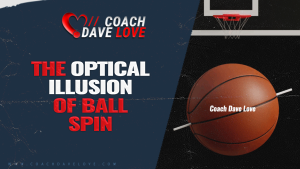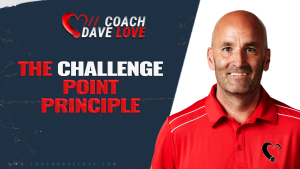The difference between good and exceptional often comes down to one crucial factor: research. While many coaches rely on their personal experiences and opinions to guide their methods, there is a unique value in an approach rooted in rigorous scientific inquiry. This blog aims to explain why being the one conducting the research not only enhances the understanding of the topic but also provides unparalleled insights that make a substantial difference in coaching outcomes.
THE DEPTH OF UNDERSTANDING
When someone undertakes research, they immerse themselves entirely in the process, grappling with every hypothesis, exploring various methodologies, and scrutinizing every piece of data. This comprehensive involvement means they understand the research topic in its entirety. In other words, by doing the research, I believe I’m in position to learn as close to 100% of the researched topic. On the other hand, those who read the published work might grasp only a portion of it. This disparity arises because readers get the distilled essence of the findings, without the intricate understanding of why certain hypotheses were rejected or why specific approaches didn’t yield the desired results. By reading the research, someone that wasn’t involved in the process might be limited to fully understanding 80% of the topic. Ideas are left out of the research paper, findings are glossed over for brevity, among other factors.
But that is only a portion of the overall picture. Understanding what doesn’t work is as crucial as knowing what does. This depth of knowledge allows the researcher to avoid pitfalls and ineffective methods that might not be apparent to those who haven’t conducted the research themselves. Essentially, the person doing the research possesses a more profound understanding, not just of the positive outcomes but of the entire investigative journey, including the discarded paths that offer critical lessons.
CONTINUOUS LEARNING AND EVOLUTION
Research is not a static process; it is dynamic and ever-evolving. By being actively involved in research, one is not only presenting findings at a certain point in time but also continually advancing their thinking. The process of research often leads to new questions and more refined hypotheses, pushing the boundaries of what we know about basketball shooting.
When research is finally published, it represents the knowledge at that specific juncture. However, the journey to publication involves numerous stages of learning and re-evaluation. Each stage offers new insights that inspire further investigation and deeper understanding. This ongoing cycle of inquiry ensures that coaching methods are always at the cutting edge, informed by the latest and most comprehensive understanding of shooting mechanics.
THE PRACTICAL BENEFITS
The practical benefits of this research-driven approach are manifold. For one, it means that coaching is always backed by the latest scientific findings, ensuring that players receive the most effective training possible. It also means that the coach can adapt quickly to new information and integrate it into their practice, something that those relying solely on experience may struggle to do.
Moreover, the process of conducting research hones critical thinking and analytical skills, enabling the coach to devise innovative solutions to complex problems. This adaptability and problem-solving capability are invaluable in a field where each player is unique and requires tailored coaching strategies. Research always guides the researcher to better questions, so by the time research has been published and available to other, I’m working on gaining clarity on the next question, always a step ahead of those reading the research.
IMPLICIT VALUE OF RESEARCH-DRIVEN COACHING
It’s important to recognize that the depth of understanding and continuous learning that comes from conducting research directly translates into superior coaching outcomes. For teams and organizations looking to enhance their shooting performance, this level of expertise offers a significant competitive advantage. All coaches are using their experience, opinions and intuition to help players, but when those ideas are supported by science and research the chance for growth increases exponentially.
In conclusion, being the one doing the research not only equips a coach with a comprehensive understanding of the topic but also ensures that their methods are continually refined and improved. That is why it has been so important to me. This makes the research-driven approach uniquely valuable in the realm of basketball shooting coaching, bringing a level of expertise that goes far beyond conventional practices.



